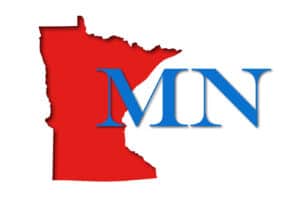How the Government Shutdown Affects HUD & Federal Housing Programs
The United States Congress has not been able to pass a bill to fund the government beyond September 30, 2013, resulting in a government shutdown. On September 27, the Department of Housing and Urban Development (HUD) released a “Contingency Plan for Possible Lapse in Appropriations” if Congress failed to approve funding for the federal government past September 30, 2013. It is unclear how long the shutdown will last or its full affects it will have on housing, but here are some of the major affects the shutdown will have on HUD and other federal housing programs.
- Staff Shortages
- Those who are necessary to address emergency situations where the failure to perform functions would result in an imminent threat to the safety of human life or the protection to property.
- Those who perform functions that are funded through fees or under multi-year (as opposed to annual) appropriations.
- Those who perform functions that are related to express authorizations to contract or borrow without an appropriation.
- Those who necessary to meet the obligations necessary to the discharge of the President’s constitutional duties and powers. This is understood to be employees necessary to interpret statutes, such as the Antideficiency Act, to avoid significant constitutional issues.
- Those who are required for the orderly termination of agency functions.
- Effects on Programs
- Homeless Assistance Grants: This program will continue to operate during the shutdown as it is deemed a "legally exempted activity" that is necessary to preserve human life and protect property.
- Housing Opportunities for Person with AIDS (HOPWA) : This program will continue to operate during the shutdown as it is deemed a "legally exempted activity" that is necessary to preserve human life and protect property.
- Disaster Recovery Assistance Programs funded through multi-year appropriations: This program will continue to operate during the shutdown as it is deemed a "legally exempted activity" that is necessary to preserve human life and protect property.
- FHA Multi-Family Development : The following aspects will be considered exempted:
- Closings on Projects with Firm Commitments that have a scheduled closing during the shutdown period.
- Closings on final Endorsements that have critical external deadlines.
- During the first 10 business days of shut down, the following will apply:
- MAP Lenders servicing construction loans may, at their and Owners’ and General Contractors’ risk, process interim construction draws. HUD will perform or contract for construction inspections on a post-review basis at such time the government re-opens. Initial and Final draws will not be processed or approved.
- No change orders will be processed or approved.
- Section 202/811 Development : The following aspects will be considered exempted:
- Closings on Projects with Firm Commitments with scheduled closing dates during the shutdown period.
- Final Closings on Projects with critical deadlines.
- No construction draws or construction inspections will be done in the first 10 days of
any shutdown and will be re-evaluated as needed for use of intermittent staff.
- Asset Management / FHA and Assisted Housing : The following aspects will be considered exempted:
- Make payments under Section 8 contracts, rent supplement, section 236, PRACS where there is a permanent or indefinite authority or multi-year funding.
- Renew/Fund Section 8 contracts and PRACS where there is budget authority available from prior appropriations or recaptures.
- Payment of PBCAs for work on properties with prior appropriations.
- Management of HUD-owned property and property where HUD is Mortagee-in-posession
- Approval of emergency repairs.
- Rental Assistance Demonstration (RAD):The following aspects will be considered exempted:
- Applications for RAD can be submitted through RAD Applications@hud.gov
- If you have received a Rental Assistance Demonstration Conversion Commitment (RCC) prior to the shutdown and your closing is scheduled, the closing process will continue.
- Effects on Public Housing Agencies
HUD will experience major staffing shortages as only 349 of 8,709 HUD employees (approximately 4%) are exempted Federal employees. Approximately 96% of Federal HUD employees in both Washington DC and any of the 80 local HUD offices will be on furlough.
In the event of a federal shutdown, most Federal employees are required to stop work because there are minimal funds to pay their compensation. A limited number of staff are “exempted” from this rule based on the functionality of the program. Exempted employees include:
Though federal funds may be available, HUD may not have the staffing capabilities to provide support for those funded programs.
If a federal housing program was funded through a previous multi-year appropriations bill or funding commitments that extends past the September 30 deadline, then those funds will still be available. Overall, you may continue to submit materials and applications to HUD, though there may not be staff available to review or process materials during the shutdown. Approvals or closings will be allowed only on an emergency basis. Additionally, closings on projects with firm commitments that have a scheduled closing during the shutdown period or closings on final endorsements that have critical external deadlines will be exempted from the shutdown. Lastly, deadlines may be extended for all HUD NOFAs to ensure basic fairness for all applicants.
Some examples include if you have a mixed finance deal in process and your LIHTC are expiring, HUD will be able to close the deal on an emergency basis during the shutdown. Additionally, if you have an issue with a HOPE VI or Choice Neighborhood grant, HUD has the ability to provide approval for projects that are closing or to complete reviews on an emergency basis.
Here are program specifics:
Public Housing Agencies will not shutdown and may spend pre-existing appropriated federal funds. HUD will not be able to provide any additional federal funds. State and local housing agencies may continue to spend federal funding like vouchers, HOME Investment Partnership Programs, and CDBG funds, though will not be able to receive any additional funds.
Grantees are recommended to make contingency plans in order to be able to handle any issues that come up during the government shutdown. If you have questions during the government shutdown, you should contact your local state or city housing office for referrals to local providers, or NH&RA.
Please click here to access the "HUD FY2013 Contingency Plan for Possible Lapse in Appropriations".



